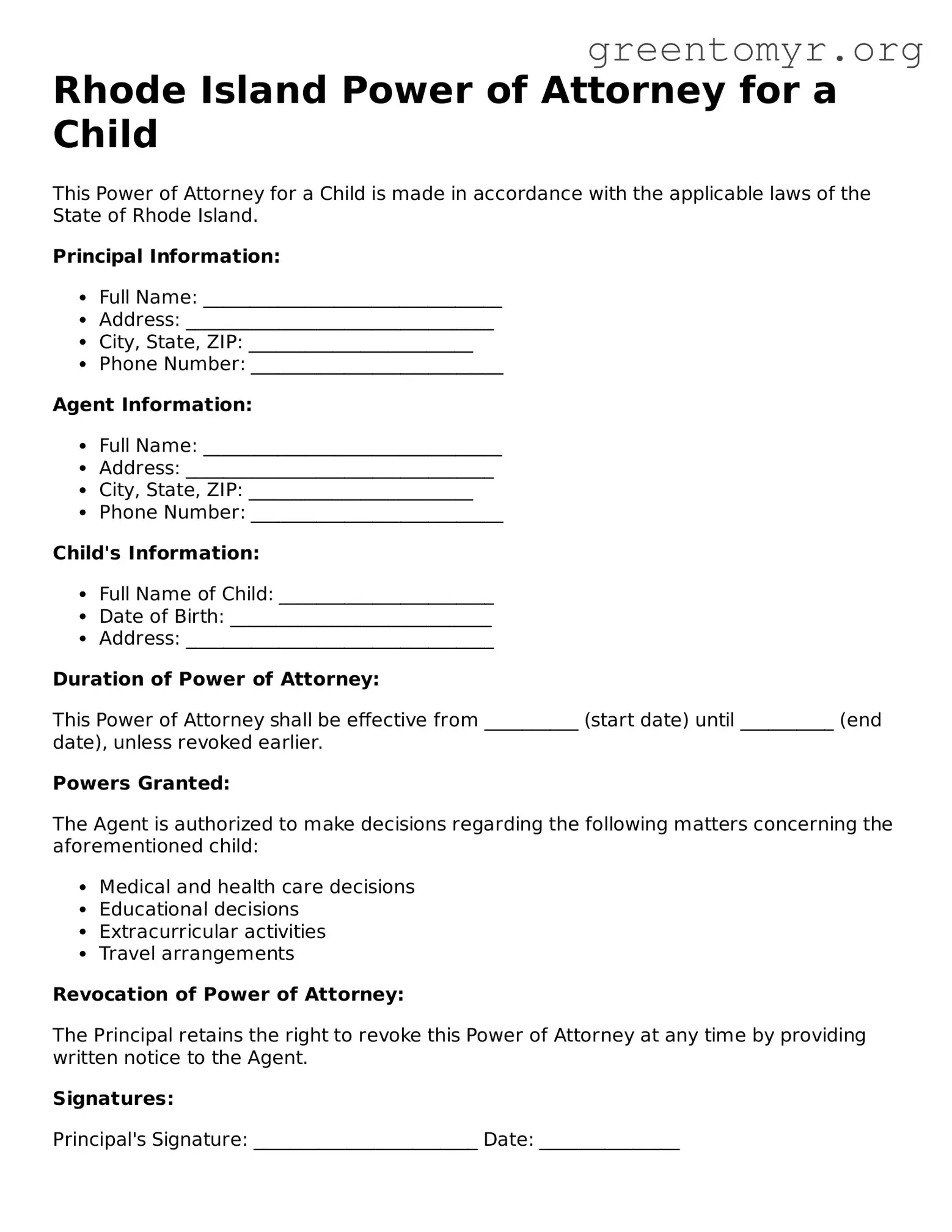Rhode Island Power of Attorney for a Child
This Power of Attorney for a Child is made in accordance with the applicable laws of the State of Rhode Island.
Principal Information:
- Full Name: ________________________________
- Address: _________________________________
- City, State, ZIP: ________________________
- Phone Number: ___________________________
Agent Information:
- Full Name: ________________________________
- Address: _________________________________
- City, State, ZIP: ________________________
- Phone Number: ___________________________
Child's Information:
- Full Name of Child: _______________________
- Date of Birth: ____________________________
- Address: _________________________________
Duration of Power of Attorney:
This Power of Attorney shall be effective from __________ (start date) until __________ (end date), unless revoked earlier.
Powers Granted:
The Agent is authorized to make decisions regarding the following matters concerning the aforementioned child:
- Medical and health care decisions
- Educational decisions
- Extracurricular activities
- Travel arrangements
Revocation of Power of Attorney:
The Principal retains the right to revoke this Power of Attorney at any time by providing written notice to the Agent.
Signatures:
Principal's Signature: ________________________ Date: _______________
Agent's Signature: ____________________________ Date: _______________
Notarization:
State of Rhode Island
County of ________________
Subscribed and sworn to before me on this ________ day of _______________, 20____.
Notary Public: ____________________________ My Commission Expires: ___________
